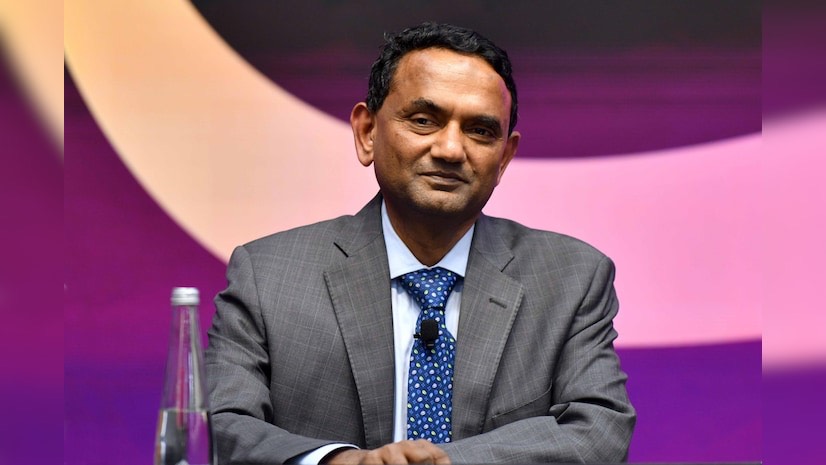AI Revolution is an Impending Threat to Call Centres’: Insights from TCS CEO K Krithivasan

AI Revolution is an Impending Threat to Call Centres’: Insights from TCS CEO K Krithivasan
TCS, a juggernaut in IT and business process outsourcing, with a workforce of over 600,000 and annual revenues nearing $46 billion has observed its pipeline of AI projects grow exponentially.
27 April 2024
By Ishika Kumar
In a series of revealing interviews with the Financial Times, K Krithivasan, the CEO of Tata Consultancy Services (TCS), outlined a future in which artificial intelligence (AI) radically transforms the call centre industry. According to Krithivasan, generative AI is poised to fulfil roles and almost replace the responsibilities traditionally held by human agents within as little as a year’s time, significantly impacting employment in a sector that is a vital part of economies, particularly in Asia and especially in India, as it is a base for call centres for companies across the world.
The Rise of Generative AI in the Customer Service Sector
TCS, a juggernaut in IT and business process outsourcing, with a workforce of over 600,000 and annual revenues nearing $46 billion has observed its pipeline of AI projects grow exponentially. From just the last quarter, these projects have doubled in value to $900 million, with expectations set for continued growth. This surge highlights a broader trend of AI integration across various business sectors, not just within TCS but globally.
Generative AI, which has the capability to analyse and utilise vast amounts of data including customer transaction histories, can potentially automate the majority of tasks currently performed by human call centre agents. Krithivasan envisions a scenario where AI not only responds to incoming calls but anticipates customer issues, covers all areas of redressals and addresses them proactively, thereby reducing the volume of incoming calls to just a mere trickle.
AI-Induced Economic Implications and Job Realignment
This technological shift introduces significant economic implications, particularly for countries like India, where more than five million individuals are employed in IT and business process outsourcing industries. The industry itself is part of a larger $250 billion technology sector that has long been a cornerstone of India’s economic growth.
Despite the transformative potential of AI, Krithivasan argues that the impact on jobs might not be as dire as presumed. While acknowledging the possible decrease in traditional call centre roles is imperative at the moment and for the way ahead, he emphasises an increasing demand for tech-savvy professionals who can navigate the way through this technological advancement. This shift necessitates a rethinking of workforce skills and training, particularly in technology and AI-related fields. This skill-based training needs to be focused and pivoted to AI.
TCS’s Strategic Adaptations
Under Krithivasan’s leadership, TCS is not just passively observing these changes but actively engaging with them. The company recently inked a multi-year partnership with AWS to offer cloud transformation and generative AI solutions, signalling its commitment and intent to lead in this new technology landscape. Moreover, TCS’s AI Cloud business unit has seen increased market traction, securing over 200 engagements in artificial intelligence alone.
The CEO highlighted the importance of staying close to customers and adapting to global macro uncertainties by leveraging TCS’s portfolio of offerings, innovation capabilities and thought leadership. This strategy has paid off, as evidenced by TCS closing the fiscal year with the highest-ever order book and a robust 26% operating margin.
Long-term Vision and Immediate Challenges to Oversee
Krithivasan has cautioned against overestimating the short-term benefits of AI, suggesting that its most significant impacts will unfold over the long term. This balanced view is crucial as it tempers expectations, fosters a more sustainable approach to integrating AI within business processes and prevents short-sightedness in decisions regarding these business processes.
The call to action is clear: there is an urgent need for upskilling and training the workforce to handle upcoming technological shifts. With less than 20% of India’s engineering graduates finding work in the industry annually, according to Nasscom, TCS’s proactive strategy to potentially increase its reach to 50 per cent of colleges is timely. It not only aims to bridge the employment gap but also prepares the workforce for the future demands of the global tech industry.
As AI continues to evolve, its integration into various sectors will necessitate significant shifts in job roles and skills requirements. Leaders like Krithivasan are at the forefront, not just in recognizing these changes but in steering their companies to adapt and thrive along with them. The narrative is not solely about the displacement of jobs but also about the creation of new opportunities parallelly, and the reshaping of the global economic landscape in the era of AI.








